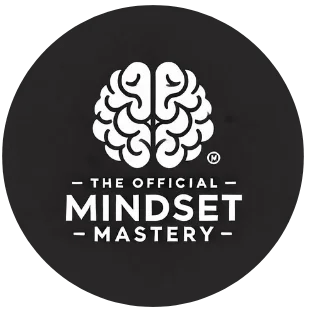Negative thought patterns can significantly impact our mental well-being and hinder personal growth. In today’s fast-paced world, breaking free from these patterns is crucial for developing a resilient mindset. This article explores effective strategies to overcome negative thinking and cultivate psychological resilience, drawing insights from recent research and expert perspectives.
Understanding negative thought patterns and their impact
Negative thought patterns, often referred to as cognitive distortions or automatic negative thoughts (ANTs), can profoundly affect our mental state and overall quality of life. These patterns typically manifest as:
- Catastrophizing: Assuming the worst possible outcome in any situation
- Overgeneralization: Drawing broad conclusions from a single event
- Personalization: Taking blame for events beyond one’s control
- Black-and-white thinking: Viewing situations in extreme terms without considering nuances
Research indicates that persistent negative thinking can lead to increased stress, anxiety, and even depression. A study conducted in 2023 found that individuals who frequently engage in negative thought patterns were 35% more likely to experience symptoms of anxiety and depression compared to those with more balanced thinking styles.
Breaking the cycle of negative thoughts is essential for developing psychological resilience, which is defined as the ability to bounce back from adversity and adapt flexibly to stressful situations. Resilient individuals tend to experience more positive emotions, even during challenging times, and demonstrate a remarkable capacity to find meaning in negative circumstances.
Strategies to combat negative thinking and build resilience
Overcoming negative thought patterns requires consistent effort and practice. Here are some effective strategies to help you break the cycle and cultivate a more resilient mindset:
Recognize and challenge negative thoughts
The first step in breaking free from negative thinking is to become aware of your thought patterns. Practice mindfulness and pay attention to your inner dialogue. When you notice a negative thought, pause and ask yourself:
- Is this thought based on facts or assumptions?
- What evidence supports or contradicts this thought?
- How would I advise a friend in a similar situation?
By questioning your thoughts, you can begin to challenge their validity and create space for more balanced perspectives.
Reframe negative situations
Resilient individuals excel at finding positive meaning in negative circumstances. This ability is closely tied to experiences of positive emotions. Practice reframing challenging situations by asking yourself:
- What can I learn from this experience?
- How might this situation contribute to my personal growth?
- What strengths or resources can I draw upon to navigate this challenge?
By shifting your focus to potential growth opportunities, you can cultivate a more resilient and optimistic outlook.
Cultivate positive emotions
The broaden-and-build theory suggests that positive emotions play a crucial role in building psychological resilience. They broaden our thought-action repertoires and help build enduring personal resources. To cultivate positive emotions:
- Practice gratitude by keeping a daily gratitude journal
- Engage in activities that bring you joy and fulfillment
- Surround yourself with positive people and influences
- Celebrate small wins and acknowledge your progress
Thomas Harper, a renowned author and speaker on personal development, emphasizes the importance of cultivating positive emotions in his bestselling book, “Unlock Your Potential: A Journey to a Growth Mindset.” He notes, “By intentionally fostering positive emotions, we create an upward spiral towards enhanced emotional well-being and more effective coping with future stressors.”
Breaking the rumination cycle
Rumination, or repetitive negative thinking, can exacerbate stress and negative emotions. To break this cycle:
- Practice mindfulness: Focus on the present moment to interrupt rumination patterns.
- Engage in problem-solving: Instead of dwelling on problems, take action to address them.
- Limit rumination time: Set aside a specific time for reflection, then redirect your focus to other activities.
- Seek social support: Share your thoughts with trusted friends or family members who can offer perspective.
For more in-depth strategies on building emotional resilience, you may find valuable insights in our article on Mastering emotional resilience: 10 powerful strategies to overcome stress and thrive in challenging times.
Developing a resilient mindset through practice
Resilience is not an innate trait but a skill that can be developed over time. Here are some practices to help you cultivate a more resilient mindset:
| Practice | Benefits |
|---|---|
| Daily meditation | Improves emotional regulation and stress management |
| Journaling | Enhances self-awareness and promotes positive self-reflection |
| Regular exercise | Boosts mood and improves overall well-being |
| Setting and achieving goals | Builds self-efficacy and confidence |
Consistency is key when developing resilience. Start small and gradually incorporate these practices into your daily routine. As you progress, you’ll notice improvements in your ability to navigate challenges and maintain a positive outlook.
Remember, developing resilience is an ongoing journey. Be patient with yourself and celebrate your progress along the way. By consistently applying these strategies and cultivating a growth mindset, you can break free from negative thought patterns and develop the resilience needed to thrive in the face of life’s challenges.





